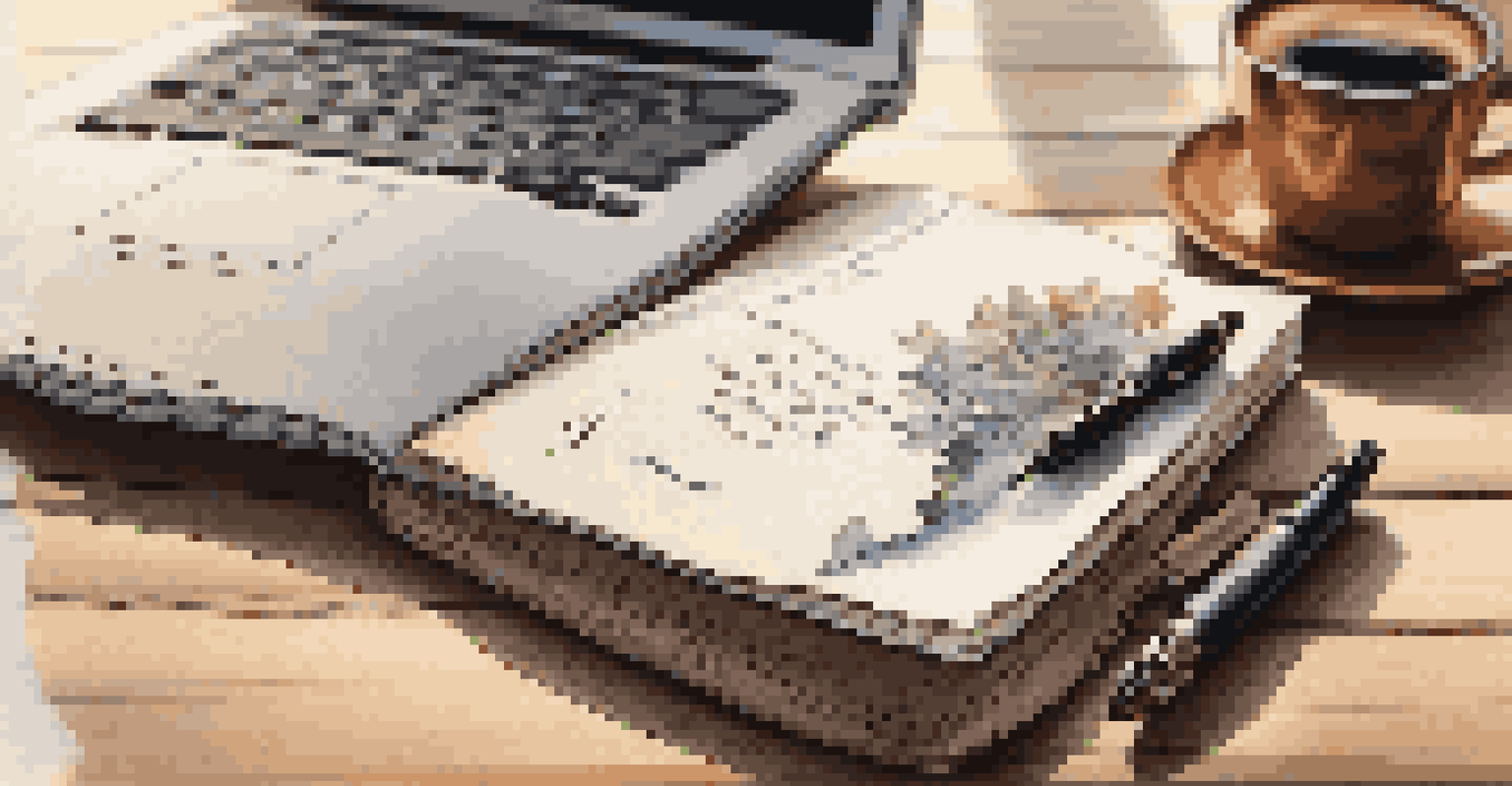Lifelong Learning: Strategies to Boost Cognitive Resilience

Understanding Lifelong Learning and Its Importance
Lifelong learning is the continuous pursuit of knowledge throughout life, not just within formal education. It encompasses a range of activities, from professional development to personal hobbies, and plays a crucial role in keeping our minds sharp. As we age, engaging in lifelong learning can enhance our cognitive resilience, enabling us to better adapt to life's challenges.
Education is the most powerful weapon which you can use to change the world.
The concept is rooted in the idea that learning doesn’t stop after school; instead, it evolves with us. For instance, picking up a new language or exploring a new technology can stimulate brain activity. By fostering curiosity, we not only enrich our lives but also create a buffer against cognitive decline.
Moreover, lifelong learning promotes emotional well-being and social connections. Whether through online courses, workshops, or community classes, learning in various settings can broaden our horizons and strengthen our relationships, ultimately contributing to a more fulfilling life.
Embracing Curiosity: The First Step to Lifelong Learning
Curiosity is the spark that ignites the flame of lifelong learning. When we approach the world with a sense of wonder, we open ourselves up to new experiences and knowledge. Think of a child, constantly asking questions—this natural inquisitiveness is a powerful tool we should all embrace as adults.

To cultivate curiosity, try to question the status quo in your everyday life. This could mean exploring a different route to work or trying a new recipe. By stepping outside of our comfort zones, we not only learn but also discover new passions, which can lead to further learning opportunities.
Lifelong Learning Enhances Resilience
Engaging in lifelong learning sharpens our cognitive abilities and helps us adapt to life's challenges.
Additionally, engaging in discussions with others can fuel your curiosity. Sharing perspectives and ideas with diverse groups encourages us to think critically and explore topics we might not have considered before, thus enriching our knowledge base.
Setting Learning Goals for Continuous Improvement
Setting specific learning goals is essential for effective lifelong learning. Goals provide direction and motivation, helping us stay focused on our growth journey. For instance, deciding to read one book a month or enrolling in a course can be manageable yet impactful objectives.
The beautiful thing about learning is that no one can take it away from you.
It's important to make these goals SMART—Specific, Measurable, Achievable, Relevant, and Time-bound. This structure not only helps in tracking progress but also in celebrating small wins along the way, keeping motivation high. Imagine the satisfaction of completing a challenging course or mastering a new skill!
Moreover, revisiting and adjusting your goals periodically is crucial. As you grow and evolve, your interests and aspirations may change, so it's vital to adapt your learning objectives to align with your current self.
Utilizing Technology for Lifelong Learning
In today's digital age, technology offers incredible resources for lifelong learning. From online courses to podcasts and webinars, the wealth of information available is at our fingertips. This accessibility allows us to learn at our own pace and on our own time, breaking the barriers of traditional education.
For example, platforms like Coursera and Khan Academy provide courses on a wide array of subjects, often for free or at a low cost. This means that anyone can learn something new, regardless of their background. Imagine learning about artificial intelligence while sipping coffee at home, tailored to your schedule!
Curiosity Fuels Continuous Learning
Embracing curiosity encourages us to explore new experiences and knowledge, leading to personal growth.
Furthermore, social media can also be a learning tool. Following thought leaders or joining educational groups can expose you to new ideas and discussions, creating a community around your learning interests.
Engaging with Diverse Perspectives and Experiences
One of the most enriching aspects of lifelong learning is engaging with diverse perspectives. This can come from traveling, attending cultural events, or simply conversing with people from different backgrounds. Each interaction is an opportunity to learn something new and challenge our assumptions.
For instance, participating in community events or workshops allows us to gain insights into different cultures and lifestyles. This not only broadens our understanding but also fosters empathy, making us more adaptable and resilient in various situations.
Moreover, reading books from authors with diverse experiences can provide a fresh lens through which to view the world. This exposure to various viewpoints keeps our minds agile and encourages critical thinking, essential components of cognitive resilience.
Practicing Mindfulness to Enhance Learning Retention
Mindfulness is a practice that can significantly enhance our capacity for learning. By being present in the moment, we can better absorb information and reduce stress, which often hinders our ability to learn. Simple practices like meditation or mindful breathing can clear our minds and improve focus.
When we apply mindfulness to our learning process, we create a conducive environment for retention. For example, taking a few minutes to reflect on what you've learned after a class can help solidify that information in your memory. It's akin to watering a plant; the more attention you give it, the better it grows.
Supportive Communities Boost Learning
Being part of a supportive learning community fosters motivation and accountability, enriching the learning experience.
Additionally, incorporating mindfulness techniques into our daily routines can lead to greater overall well-being. This holistic approach not only supports cognitive resilience but also enhances the overall learning experience.
Building a Supportive Learning Community
Having a supportive community can significantly enhance the lifelong learning experience. Surrounding ourselves with like-minded individuals fosters motivation and accountability, making the learning journey more enjoyable. Think of it as a group workout; having friends with you often keeps you committed and pushes you to achieve more.
Consider joining clubs, study groups, or online forums related to your interests. Engaging in discussions and sharing resources can lead to deeper insights and a richer understanding of the material. Plus, these connections can lead to lifelong friendships built on shared passions for learning.

Moreover, mentorship plays a vital role in building a supportive learning environment. Whether it's a formal mentor or a peer guiding you, having someone to encourage you can make a world of difference in your learning journey.
Reflecting on Your Learning Journey for Continuous Growth
Reflection is a powerful tool in the lifelong learning process. Taking time to assess what you've learned and how you've grown can provide valuable insights into your learning journey. This introspection allows you to identify strengths, areas for improvement, and future goals.
For instance, keeping a journal can be a great way to document your thoughts and experiences. By reviewing your entries, you can see patterns in your learning style and recognize the progress you've made over time. It's like looking back at old photographs; you can appreciate how far you've come.
Additionally, sharing your reflections with others can enhance your learning experience. Engaging in discussions about your insights not only solidifies your understanding but can also inspire others to reflect on their learning journeys.